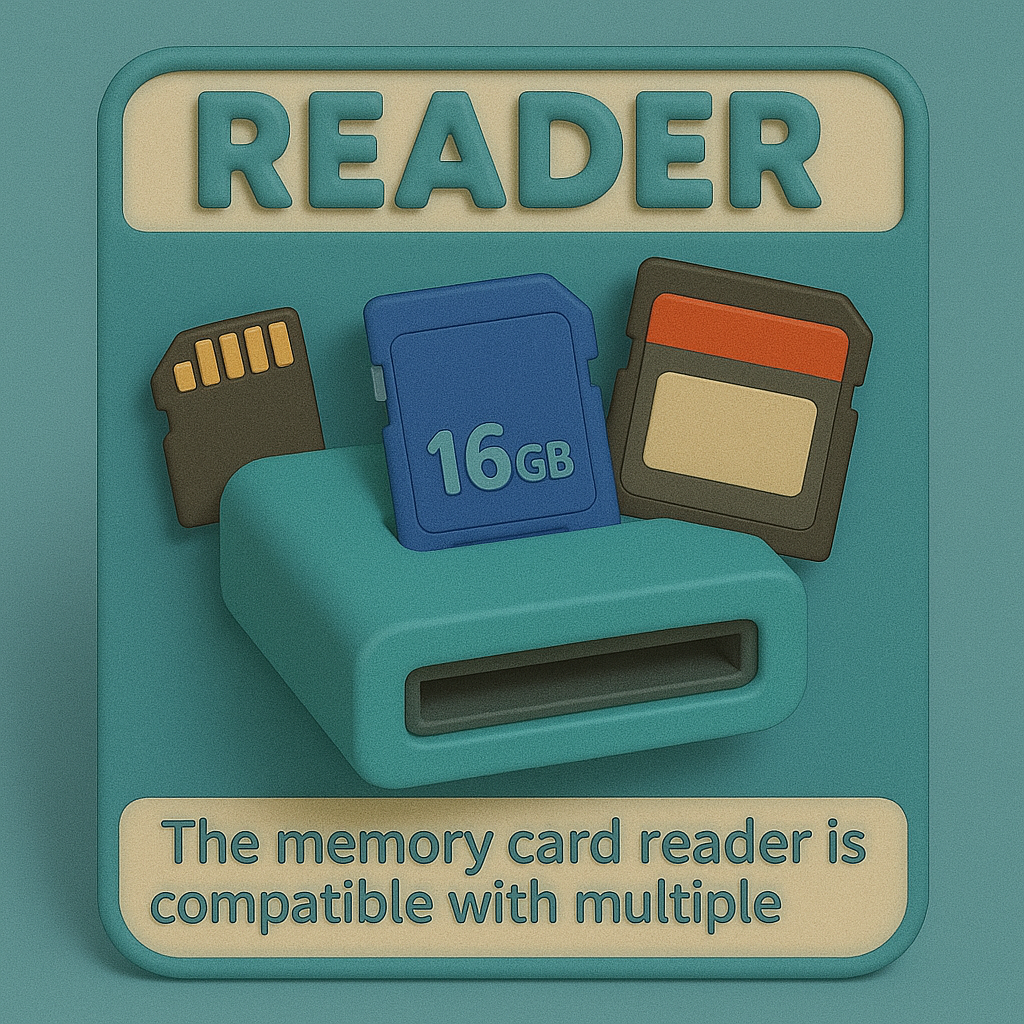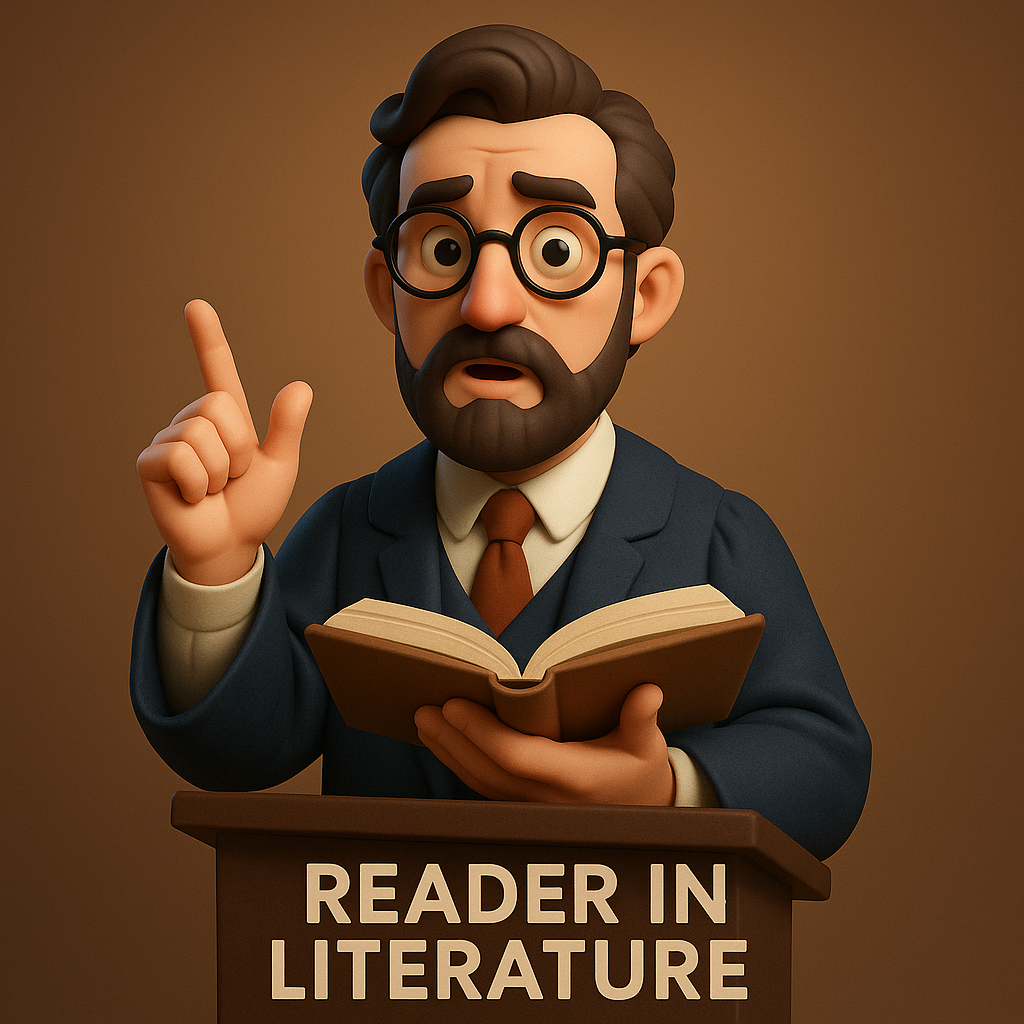Reader
Definition
The term "reader" describes a person who reads written or printed material, or a device used to read or interpret data.
Parts of Speech
- Noun
Pronunciation
American English
- IPA Pronunciation: /ˈriː.dɚ/
- Respelling: REE-der
British English
- IPA Pronunciation: /ˈriː.də/
- Respelling: REE-duh
Etymology
The word "reader" originates from Old English "rædere," meaning "one who reads or advises," derived from "rædan" (to read, interpret, or advise). It evolved through Middle English to denote a person engaged in reading activities.
Derivatives
- Readership (noun)
- Reread (verb)
- Readable (adjective)
- Speed-reader (noun)
- Proofreader (noun)
Synonyms
- Peruser
- Audience
- User (for devices)
Antonyms
- Writer
- Nonreader
- None
Usage
The term "reader" is used in contexts ranging from literature to technology. For example, "The book was captivating, attracting many readers" or "The device functions as a barcode reader."
Related Terms
- Text: A written or printed work.
- Interpreter: A person or device that interprets data or meaning.
- Literature: Written works, especially those considered of superior artistic merit.
Detailed Definitions
Noun
- A person who reads written or printed material: Refers to an individual engaged in the activity of reading.
- Example: "The library is filled with enthusiastic readers."
- A device for reading data: Refers to equipment used to interpret or extract information from various formats, such as electronic files or physical media.
- Example: "The memory card reader is compatible with multiple formats."
- An academic title: Refers to a university lecturer, especially in the British academic system, who ranks below a professor.
- Example: "The Reader in Literature delivered a compelling lecture."
reader



🇨🇳 Mandarin
- 读者 (dúzhě) - a person who reads
- IPA Pronunciation: /tu˨˩˦ʈʂɤ˥˥/
- English Respelling: du-zhe
- 读卡器 (dú kǎ qì) - a device that reads data
- IPA Pronunciation: /tu˨˩˦ka˨˩˦t͡ɕʰi˥˥/
- English Respelling: du ka chi
🇮🇳 Hindi
- पाठक (pathak) - a person who reads
- IPA Pronunciation: /pɑːʈhək/
- English Respelling: pa-thak
- रीडर (reader) - a device that reads data
- IPA Pronunciation: /riːdər/
- English Respelling: ree-der
🇪🇸 Spanish
- Lector - a person who reads
- IPA Pronunciation: /lekˈtoɾ/
- English Respelling: lek-tor
- Lector de tarjetas - a device that reads data
- IPA Pronunciation: /lekˈtoɾ de taɾˈxetas/
- English Respelling: lek-tor de tar-he-tas
🇫🇷 French
- Lecteur - a person who reads
- IPA Pronunciation: /lɛk.tœʁ/
- English Respelling: lek-tur
- Lecteur de carte - a device that reads data
- IPA Pronunciation: /lɛk.tœʁ də kaʁt/
- English Respelling: lek-tur de kart
🇸🇦 Modern Standard Arabic
- قارئ (qari') - a person who reads
- IPA Pronunciation: /qaːriːʔ/
- English Respelling: qaa-ree
- قارئ بطاقة (qari' bitaaqa) - a device that reads data
- IPA Pronunciation: /qaːriːʔ biˈtʕaːqa/
- English Respelling: qaa-ree bi-taa-qa
🇧🇩 Bengali
- পাঠক (Pathak) - a person who reads
- IPA Pronunciation: /pɑʈhɑk/
- English Respelling: pa-thak
- রিডার (Riḍār) - a device that reads data
- IPA Pronunciation: /ɹid̪aɹ/
- English Respelling: ri-dar
🇷🇺 Russian
- Читатель (Chitatel') - a person who reads
- IPA Pronunciation: /t͡ɕɪtɐˈtelʲ/
- English Respelling: chi-ta-tel
- Читатель устройства (Chitatel' ustroystva) - a device that reads data
- IPA Pronunciation: /t͡ɕɪtɐˈtelʲ usˈtrojstvə/
- English Respelling: chi-ta-tel us-troy-stva
🇵🇹 Portuguese
- Leitor - a person who reads
- IPA Pronunciation: /lejˈtoɾ/
- English Respelling: ley-tor
- Leitor de cartão - a device that reads data
- IPA Pronunciation: /lejˈtoɾ dɨ kɐɾˈtɐ̃w̃/
- English Respelling: ley-tor de kar-taum
🇮🇩 Indonesian
- Pembaca - a person who reads
- IPA Pronunciation: /pəmˈbatʃa/
- English Respelling: pem-ba-cha
- Pembaca kartu - a device that reads data
- IPA Pronunciation: /pəmˈbatʃa ˈkartu/
- English Respelling: pem-ba-cha kar-tu
🇩🇪 German
- Leser - a person who reads
- IPA Pronunciation: /ˈleːzɐ/
- English Respelling: le-zer
- Kartenleser - a device that reads data
- IPA Pronunciation: /ˈkaʁtn̩leːzɐ/
- English Respelling: kar-ten-le-zer
🇯🇵 Japanese
- 読者 (dokusha) - a person who reads
- IPA Pronunciation: /do̞kɯ̟ᵝɕa̠/
- English Respelling: do-ku-sha
- カードリーダー (kādorīdā) - a device that reads data
- IPA Pronunciation: /kaːdoɾiːdaː/
- English Respelling: ka-do-ri-da
🇻🇳 Vietnamese
- Người đọc - a person who reads
- IPA Pronunciation: /ŋʷi˨˩ ɗok˦ˀ˥/
- English Respelling: nguoi dok
- Máy đọc thẻ - a device that reads data
- IPA Pronunciation: /maːj˨˩ ɗok˦ˀ˥ tʰe˧˧/
- English Respelling: may dok the
🇰🇷 Korean
- 독자 (dokja) - a person who reads
- IPA Pronunciation: /tok̚t͈͈ɕa̠/
- English Respelling: dok-ja
- 카드 리더 (kadeu rideo) - a device that reads data
- IPA Pronunciation: /kʰa̠dɯ̟ liːdɯ̟/
- English Respelling: ka-deu ri-deo
🇹🇷 Turkish
- Okuyucu - a person who reads
- IPA Pronunciation: /oˈkujuʤu/
- English Respelling: o-ku-yu-ju
- Kart okuyucu - a device that reads data
- IPA Pronunciation: /ˈkaɾt oˈkujuʤu/
- English Respelling: kart o-ku-yu-ju
🇵🇰 Urdu
- قاری (qari) - a person who reads
- IPA Pronunciation: /qaːriː/
- English Respelling: qaa-ree
- کارڈ ریڈر (card reader) - a device that reads data
- IPA Pronunciation: /kɑːrd riːdər/
- English Respelling: kaard ree-der





